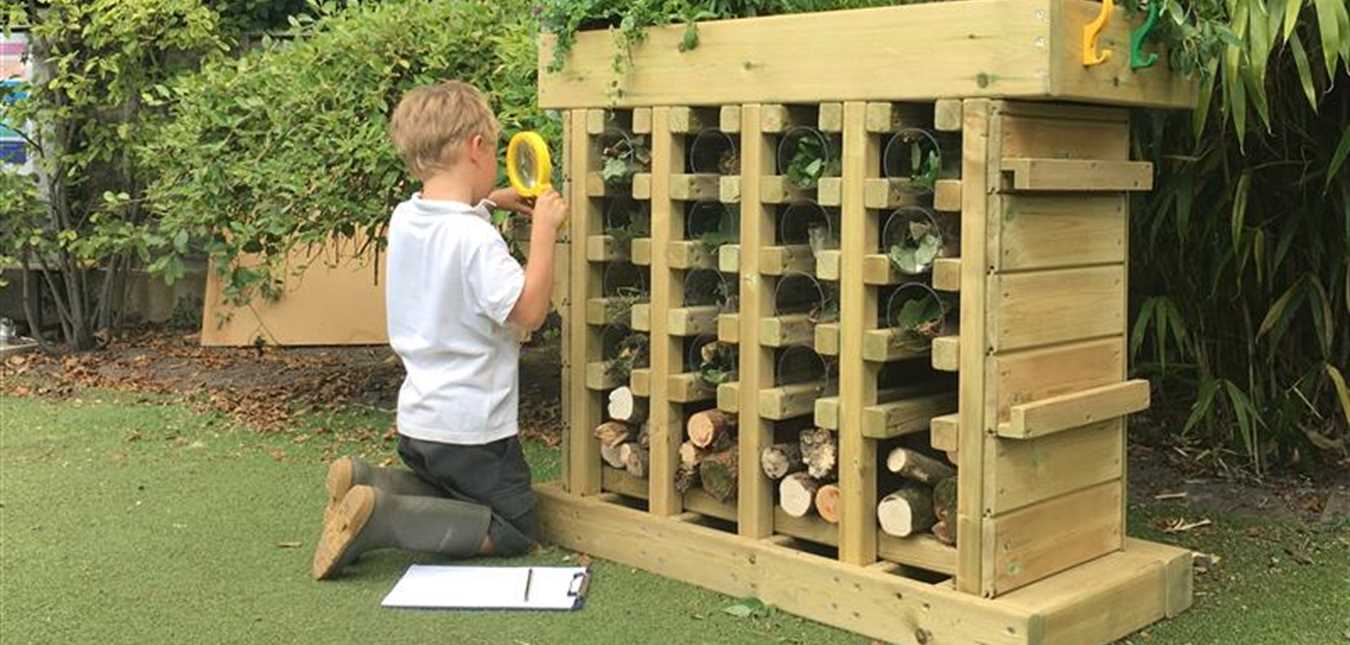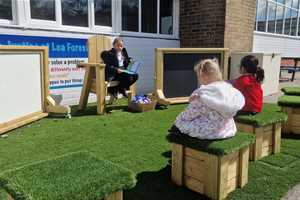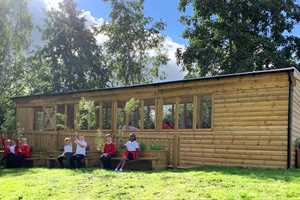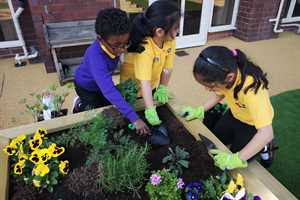
Outdoor Learning and Play
5 Extensive Benefits Of Learning Through Discovery In The Playground
Learning through discovery is often overlooked as just learning by playing and experimenting. However learning through discovery is much more than just that and has so many benefits, that many don’t realise. It is a style of learning which should be promoted in every nursery garden and school playground.
The theory suggests that children learn best through experimentation and discovery through child-led play, rather than adult-led activities, which often mean children must learn through listening rather than doing.
Learning through discovery can take place through adult-led activities, too, when children are asked to discover by themselves or experiment with different materials.
Many child-led activities involving learning through discovery are often planned by accident or participated in when children are playing.
Here Are 5 Benefits of learning through discovery:
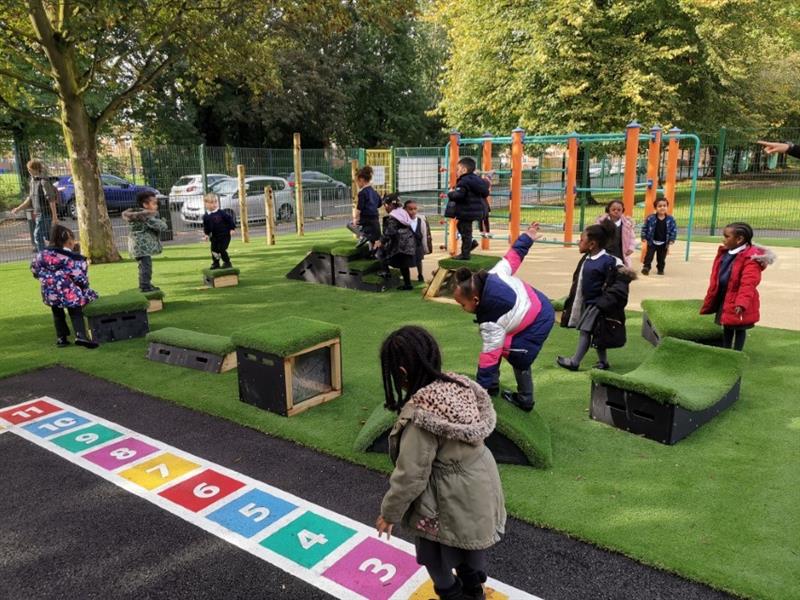
1. Literacy
Children’s literacy skills are developed through learning through discovery when they discuss their discoveries with one another, they are introduced to new vocabulary as they discuss it with adults and are encouraged to describe what it is.
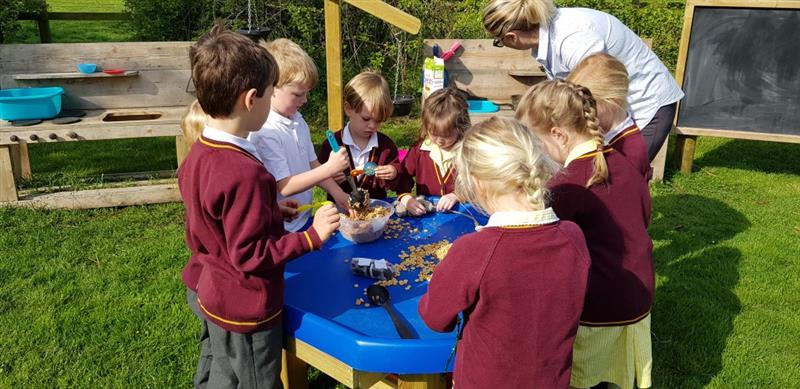
Some children will also record their experiences and discoveries through writing what they have found or are drawing it - a fantastic way to develop children’s fine motor skills and encourage them to pick up a pen!
When children discover something that they are unsure of, such as a small insect, they can be directed to age-appropriate books to find out more information – engaging children in reading non-fiction books.
2. Mathematics
Mathematics is another benefit of discovery play as they count objects found in the natural play space such as leaves, rocks, petals and feathers.
Children will also discover patterns in the natural world as they observe the lifecycle changes of different insects, plants or trees – children may find that a small plant has no leaves one week, then it will gain beautiful, colourful leaves before losing them again. They will enquire and hypothesise why this has happened.
Children may even find patterns on the bark of trees and attempt to replicate the pattern with sticks on the ground or other materials.
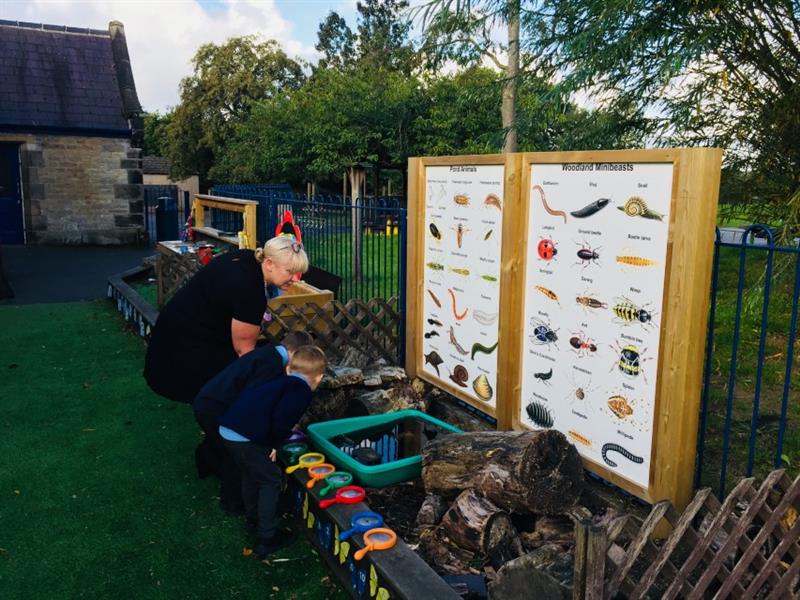
3. The Arts
Children can express themselves through art when they sit and draw the natural world and use natural materials to create models of the things they have found – encouraging children to develop their expressive arts and design skills.
Observing the natural world will enable children to discover the beauty of nature including the patterns in the leaves and the way things form, such as the design on a butterfly’s wing – inspiring children to write, draw or construct what they have seen.
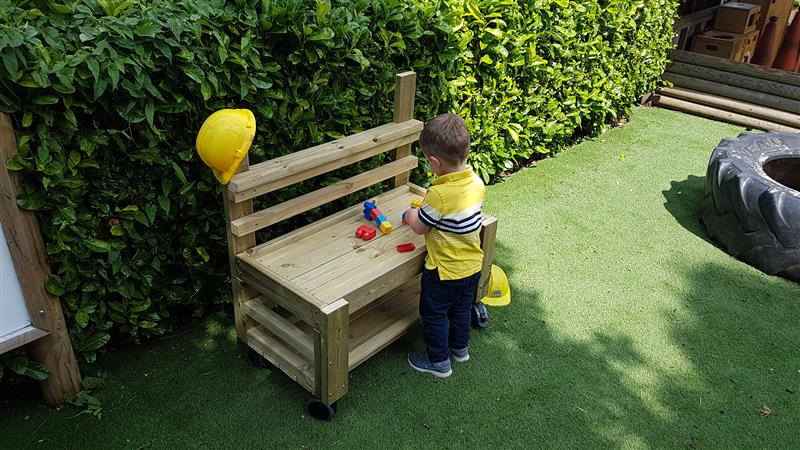
4. Physical
Children’s fine motor skills are developed as they move and manipulate objects.
This could be as simple as manipulating sticks and stones to create a pattern in the mud, or collecting materials to transport elsewhere or picking up objects to observe petals and other materials.
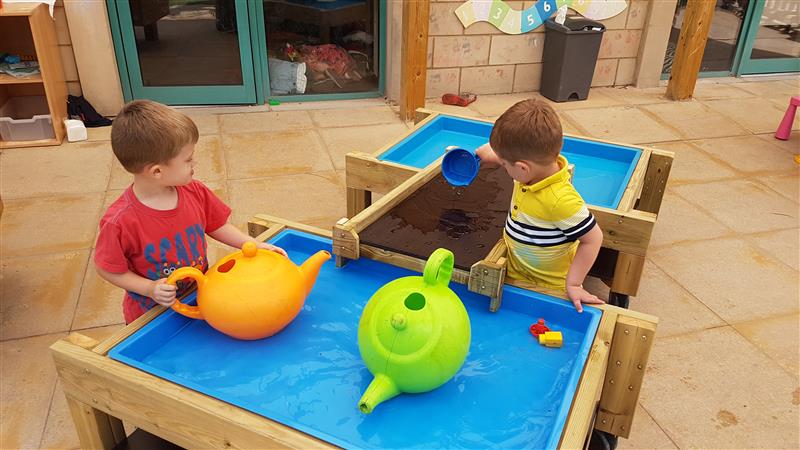
5. Cognitive
Cognitive development comes naturally along with learning through discovery play when children use their processing skills to observe the world around them and ask questions about it.
Children instinctively enquire about the natural world and the things that have changed or grown. These questions provide the basis for the development of other areas such as art, literacy and mathematics, too.
Simply, the benefits of learning through discovery are endless and should be promoted in every school and nursery.
If you would like to promote learning through discovery in your school playground or nursery garden through the addition of our excellent outdoor play and learning Products, please feel free to Contact Us. We'd love to help!



